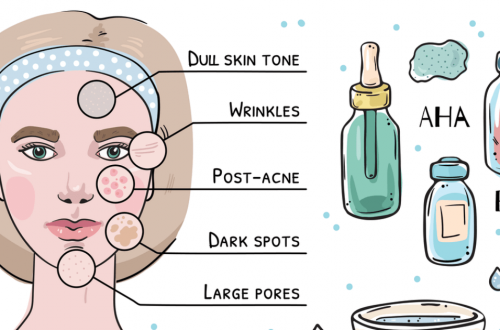
Taking care of oily skin
Most of us have had oily skin at some point in our lives due to overproduction of sebum. Learning how to take care of oily skin is important to avoid blackheads, pimples and other acne symptoms:
- Use gentle cleansers, such as micellar waters or cleansing milk
- Hydrate the face with an oil-free moisturiser with sebum-regulating active ingredients
- Choose a non-comedogenic, water-based makeup
- Always remove makeup at the end of the day
- Eat a balanced diet low in processed carbohydrates, sugars, and dairy
Oily skin: What is it?
Oily skin or seborrhea is an excess of sebum that usually shows up in the form of shiny areas on the central areas of the face, especially on the forehead and nose. The skin pores dilate and the skin is thicker. In the most severe cases, a layer of fat can be felt when touching the skin. Seborrhea can also occur on the scalp, making your hair greasy and sticky.
The role of sebum is to prevent the skin from drying out. Paradoxically, oily skin is often scaly on the surface, thus causing seborrheic dermatitis in the centre of the face or on the scalp.
Causes of oily skin
Oily skin is common, especially on the face and scalp. It originates when the sebaceous glands of the skin work excessively and produce too much sebum. The good news is that people with this skin type tend to have fewer wrinkles as they age. The bad news is that it creates the perfect context for blackheads, pimples and other acne symptoms to appear. Some of the causes of oily skin include:
Hormones: Hormonal changes can stimulate excess sebum production. Hormones fluctuate during puberty, before your period, during pregnancy, and at menopause. Stress or illness can cause hormonal imbalance resulting in oily skin and acne.
Diet: Consuming excessive amounts of trans fatty acids, processed carbohydrates, sugars, and dairy products can lead to acne. Following a balanced diet with natural foods is not only beneficial for your skin but is also for your general health.
Climate: Hot, humid weather can stimulate sebum production, which is why skin tends to be oilier in the summer months.
Genes: Many people are simply born with a tendency to produce more sebum. The downside of oily skin. The advantage is that your skin is thicker and less prone to developing wrinkles.
Overcleaning: The more you exfoliate and remove your skin’s natural sebum, the more sebum you produce to try and restore a balance.
Cosmetics: Oil-based makeup clogs pores, gives a shiny effect and can cause acne. Aggressive products can damage the skin, causing increased sebum production.
Medication: Some prescription medications cause dehydration, so the skin produces more oil to compensate.





